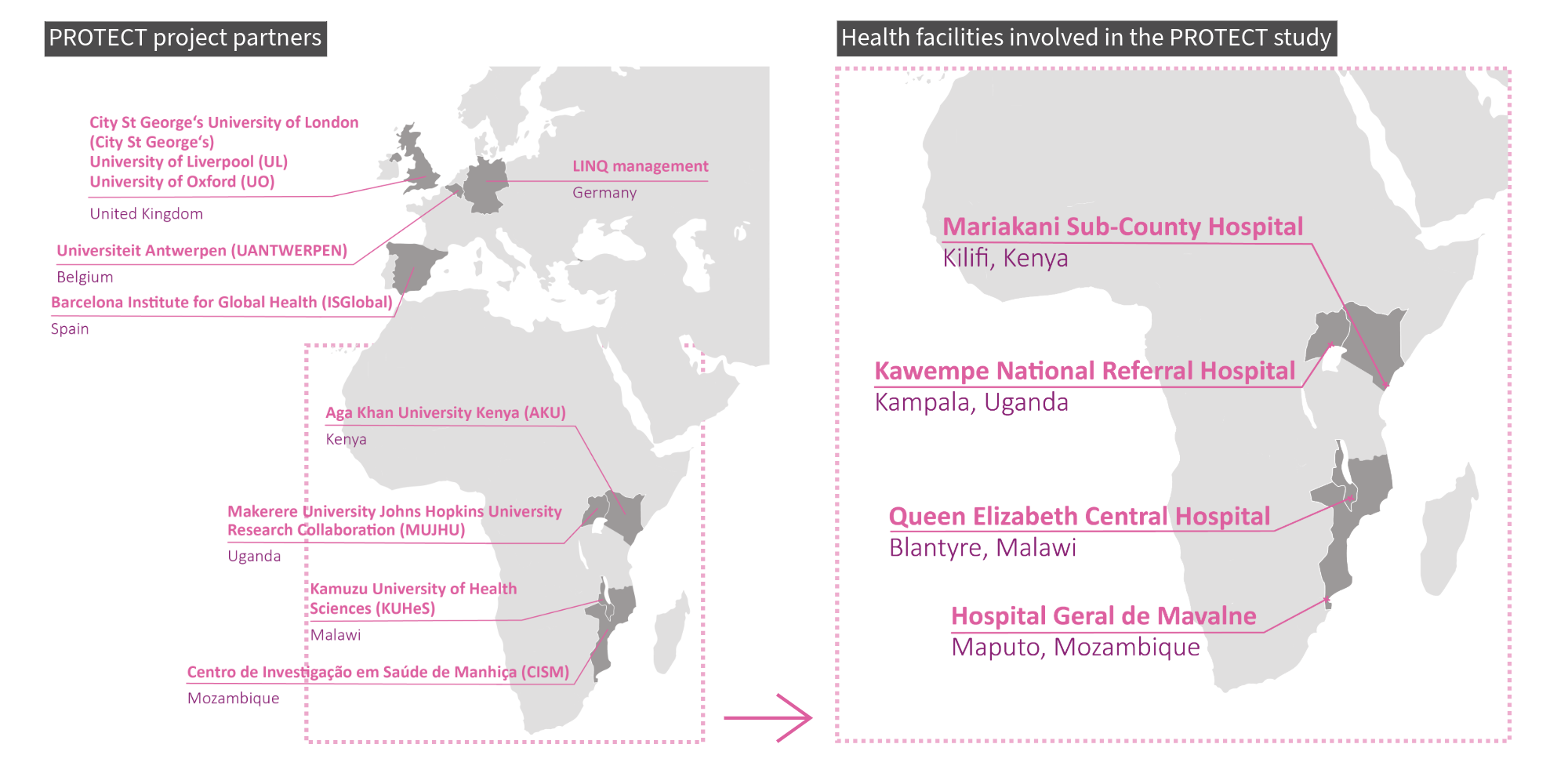“Our goal is to strengthen the surveillance of bacterial diseases”: How PROTECT contributes to the fight against AMR
When patients test positive for bacterial infections, antibiotics can be lifesaving. In the case of Group B Streptococcus (GBS), the bacterium at the centre of the PROTECT network’s work, giving antibiotics to pregnant women can protect newborns from several illnesses, including sepsis and meningitis. However, GBS can sometimes develop resistance, severely affecting the effectiveness of antimicrobial drugs.
Efforts to limit the rise in AMR
The measures that can be taken to address this growing health emergency are varied and include better sanitation and hygiene, strengthening surveillance systems to better understand the scope of antimicrobial resistance (AMR) and improving access to vaccines. This is especially important in low- and middle-income countries, where the burden of AMR is high, and vaccination prevents infections from occurring in the first place.
Dr Sergio Massora from the PROTECT partner Fundaçao Manhiça lists some of the ways AMR growth can be curbed:
The importance of taking action in low- and middle-income countries
Medical staff and patients in low- and middle-income countries often face a particularly difficult situation when it comes to protecting pregnancy and newborn health. From limited access to healthcare to insufficient capacity for microbiological testing, a variety of factors severely limit patients’ access to appropriate care and medical professionals’ ability to take measures to prevent the growth of AMR.
Dr Massora lists the various reasons why AMR burden is concentrated in LMICs:
PROTECT’s role in fighting AMR
At the heart of PROTECT’s work is the aim to strengthen hospitals’ ability to measure the burden of GBS and other bacterial infections threatening infants’ health in Kenya, Malawi, Mozambique, and Uganda. By supporting medical sites in performing microbiological testing, the project is closing the information gap on bacterial disease, including AMR, that persists in low-income countries.
Dr Massora reflects on PROTECT’s role:
Additionally, the ability to collect data on deliveries and infant health is essential for conducting vaccine trials. The information on the burden of disease collected in hospitals that are part of PROTECT can serve as a basis for effectiveness estimates when vaccines for GBS and RSV become available, thereby increasing the role hospitals in Africa can play in medical trials.
Maps of PROTECT partners (left) and hospitals where GBS surveillance has been set up (right).
Despite their critical importance in drug and vaccine development, only a fraction of vaccine trials take place in African countries, reflecting and further deepening global health inequalities. The GBS disease surveillance and pregnancy registries being established as part of PROTECT represent a small step toward changing that reality, reflecting the consortium’s dedication to accelerating the maternal vaccine research agenda in Africa.
The role of vaccines in limiting the growth of AMR
Vaccines against illnesses such as GBS will not only protect infants’ health but also contribute to the fight against AMR. By preventing infection in the first place, they reduce the need for antibiotics and, in turn, the likelihood of bacteria developing resistance.
Dr Massora details the positive chain of events set in motion by vaccination:
PROTECT’s dual role in combating the rise in AMR – strengthening both the capacity for microbiological surveillance and the vaccine trials infrastructure – reflects the consortium’s commitment to tackling this global threat in the field of newborn and pregnancy health. Make sure to explore the Activities page to learn more about the project’s goals.

